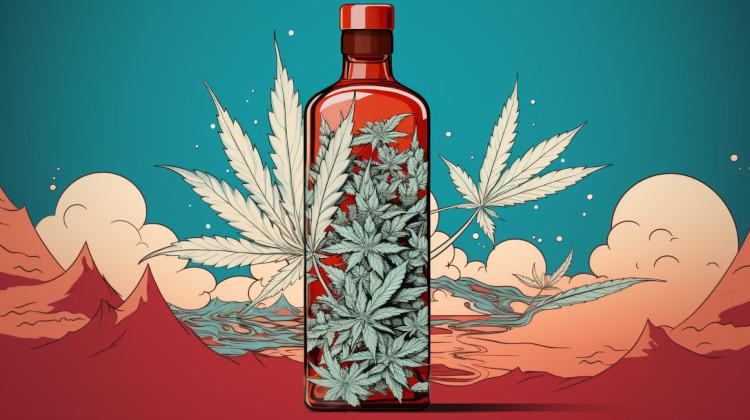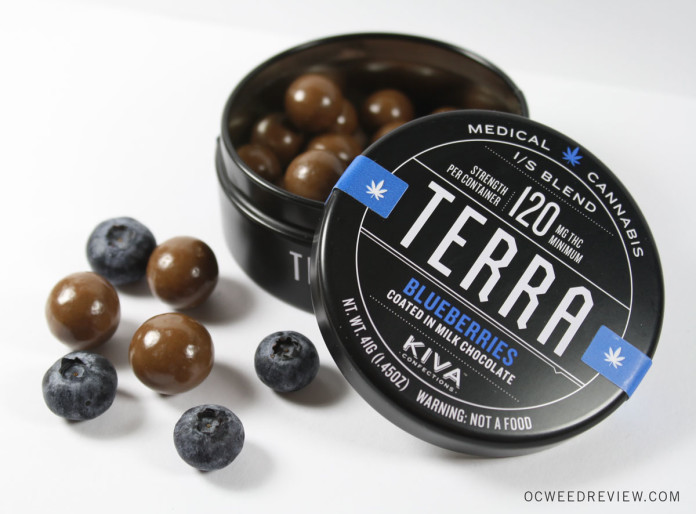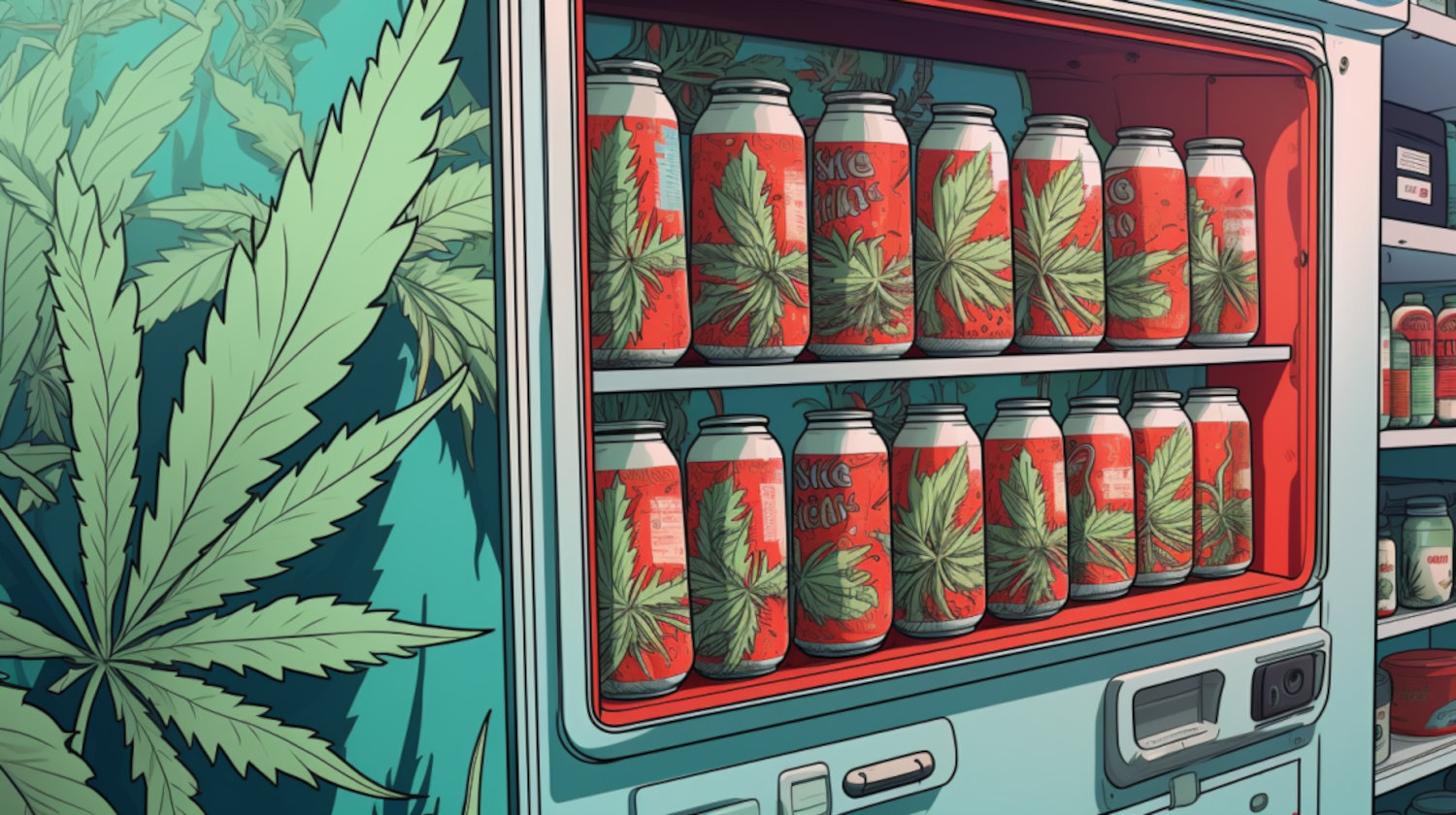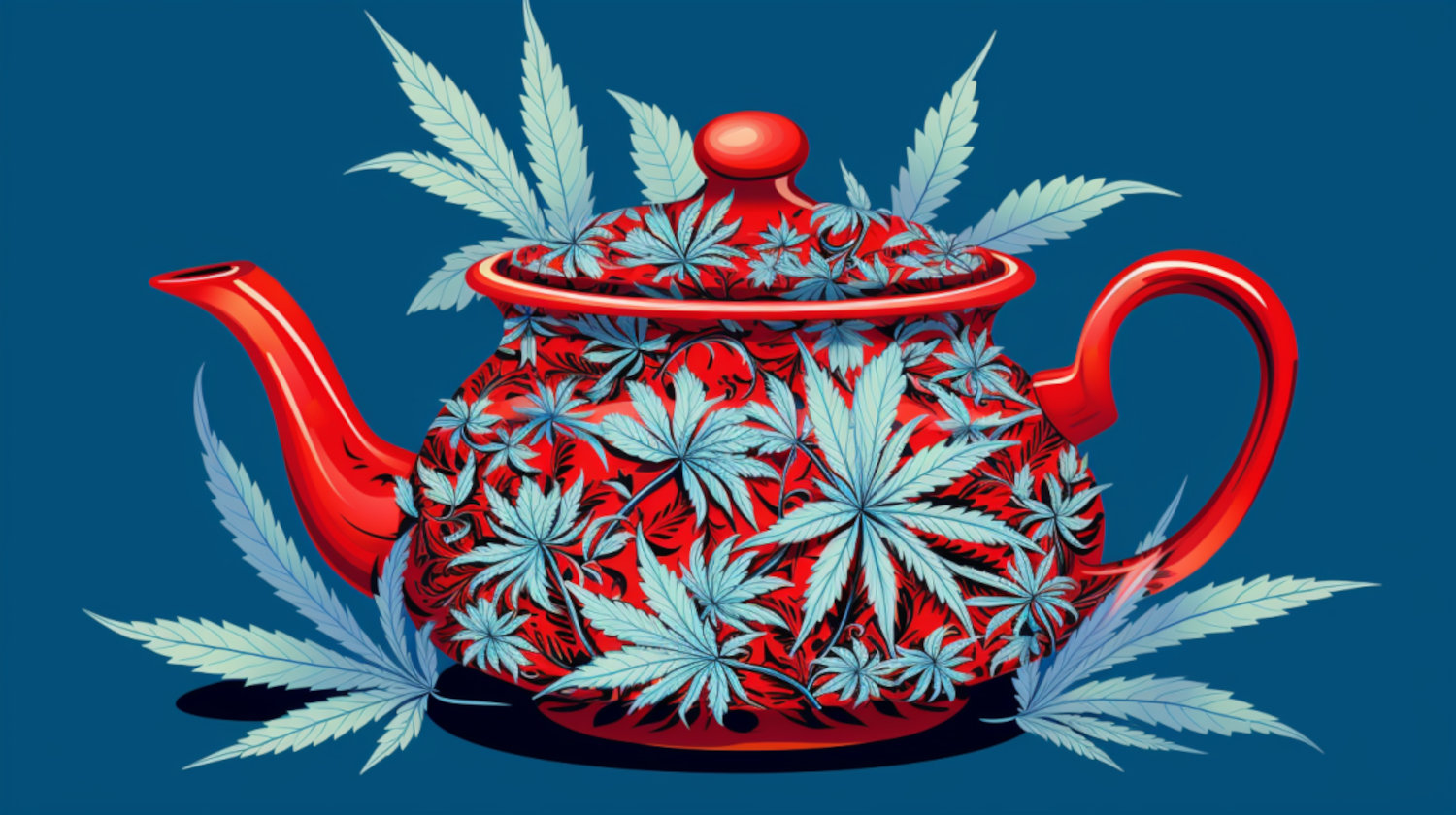In This Article
- What is THC Syrup?
- What About CBD Syrup?
- Is THC Syrup Stronger Than Edibles?
- What are the Benefits of Cannabis Syrup?
- Medicinal Use
- Appetite Booster
- For Relaxation
- Long-Lasting Effects
- Precise Serving Size
- Discreet
- Versatility
- Fewer Health Risks
- Are There Any Risks or Drawbacks of Weed Syrup?
- Potency Challenges
- Unpredictable Effects
- Delayed Onset
- Medical Interactions
- How to Use THC Syrup
- 1. Direct, Controlled Consumption
- 2. Mix with Beverages
- 3. Culinary Treats
- 4. DIY Edibles
- 5. Microdosing
- How Much THC Syrup Should You Take?
- Is Liquid THC Better Than Edibles?
- How to Make Cannabis Syrup
- Is THC syrup the same as lean?
- Does THC syrup expire?
- How much THC is typically in weed syrup?
- Is cannabis syrup more dangerous than edibles?
- Is THC syrup legal?
- References
Cannabis enthusiasts and medical users alike have a massive array of options to choose from nowadays. There’s an ever-expanding world of cannabis products, each somehow more unique than its predecessor. While traditional methods like smoking and vaping have long held the spotlight, a myriad of innovative alternatives have emerged.
Among these options is THC syrup, a versatile way to explore cannabis.
Although not as popular as some, THC syrup offers a unique, versatile way to experience the benefits of cannabis.
What is THC Syrup?
THC syrup is a sweet, thick, viscous liquid that’s a combination of cannabis concentrate, a sweetener, and (typically) vegetable glycerin. The cannabis concentrate contains high levels of THC, the most well-known compound in the plant. However, not all cannabis syrup is THC syrup. In fact, some consumers may instead prefer CBD syrup.
The thick, glutinous texture may resemble cough syrup. However, it differs from regular cough syrup because it lacks the distinctive “medicine” aftertaste. Instead, it usually has a sweet, candy-like flavor that helps mask the herbal taste of cannabis.
It’s a quick, convenient, and versatile way to consume cannabis in a concentrated form. Research shows that people who use edibles perceive less of a health risk compared with smoking. They also experience more potent drug effects while having the ability to use cannabis discreetly. Some even cite that edibles help them sleep easier.1
Unlike THC tinctures and oils, syrup contains more additives to make it palatable. While that makes THC syrup a potent edible, it also means it isn’t safe to vape and inhale like you might with wax, shatter, or other concentrates.
Although THC syrup is often available from your local dispensary, many consumers choose to make it at home (and for good reason).
What About CBD Syrup?
If you're looking for a non-intoxicating experience, CBD syrup might be a better fit. While they aren't as common in many markets, CBD syrups offer many of the same advantages as its THC counterparts, minus the "high."
CBD syrup could be a great option to take advantage of the popular cannabinoid's effects in a more palatable and versatile format than many oils and tinctures.
Is THC Syrup Stronger Than Edibles?
THC syrup can feel stronger than edibles due to its faster absorption, especially when taken sublingually or mixed into beverages. While both forms can be potent, the rapid onset of THC syrup may lead to a more immediate and intense experience, while traditional edibles often take longer to digest and activate.
What are the Benefits of Cannabis Syrup?
Weed syrup is another method of ingesting cannabis concentrate, so it delivers similar results to concentrates or edibles. There are several reasons someone might benefit from THC syrup.
Medicinal Use
Throughout civilization, cannabis has been used for medicinal, psychological, and spiritual purposes.
Today, nearly 5 million adults in the United States use cannabis for medical reasons.
Because of the cannabinoids it contains, THC syrup is reportedly useful in addressing issues like chronic pain, anxiety, and nausea. Specifically, THC has also been shown to demonstrate potential as an anti-inflammatory. That makes it an increasingly popular option for potentially treating arthritis, fibromyalgia, and lupus.
Overall, THC syrup may be a good option for consumers looking to enjoy the herb’s therapeutic benefits without smoking.
Appetite Booster
The sweet concentrate may come in handy for some consumers struggling to maintain an appetite.2 Users report a teaspoonful of THC syrup a few minutes before a meal may increase appetite. While it’s anecdotal, some users even report the meal as more enjoyable.
For Relaxation
Many consumers enjoy cannabis for its relaxing, calming effects. It may be an effective way to relax after a long day. It’s no secret cannabis is a go-to for most patients to combat stress and even muscle fatigue. The potent effects of THC syrup may be practical for some consumers.
Long-Lasting Effects
THC syrup offers a prolonged, gradual release of cannabinoids into your system. You’ll likely sustain effects for longer than you would with smoking or vaping. In fact, effects can last for hours, making it an excellent choice for extended relief or lasting recreational enjoyment.
Precise Serving Size
Concentrated syrups in dispensaries make it easier to control the amount of THC you consume. It enables more precise dosing, which is particularly appealing to those interested in microdosing. Some consumers prefer the ability to take small, controlled amounts for more subtle effects and minimal intoxication.
Discreet
Unlike smoking or vaping, THC syrup allows for discreet consumption. Mix it into beverages or use it as a secret ingredient in recipes. It lets consumers enjoy cannabis without drawing attention.
Versatility
Cannabis syrup's versatility is one of its most significant advantages. Unlike many other
THC drinks, you can add weed syrup to different beverages. You might drink it by itself or add it to water, lemonade, soda, or any other libation.
Take it a step further and drizzle it over desserts, or create your own unique concoctions. Add a spoonful to your juice or glaze donuts with the syrup – just think of the potential. The flexibility offers a wide range of options that are tailored more to your preferences.
Fewer Health Risks
As mentioned above, research suggests edible products like THC syrup are often perceived as less risky than smoking. Consumers appreciate the absence of harmful smoke, making it a potentially safer choice for those concerned about their lung health.
Are There Any Risks or Drawbacks of Weed Syrup?
While THC syrup offers possible benefits, it’s important to be aware of potential drawbacks and risks, too. Understanding these factors can help you make an informed decision about whether it's the right cannabis product for your needs.
Potency Challenges
While dispensaries may offer more accurately labeled THC syrups, it may be difficult at home to pinpoint the dosage strength. That may make it challenging to measure or control the amount you consume, leading to possibly taking too much THC.
Moderation and going low and slow on dosage is the easiest way to prevent this downside.
Unpredictable Effects
Similarly, effects can be unpredictable when you don’t know how strong the syrup is. Likewise, factors like metabolism, cannabis tolerance, and individual differences can lead to varying responses.
The best recommendation is to go low and slow to avoid taking too much. It’s better to have effects too weak that you can add onto rather than effects too strong.
Delayed Onset
Unlike smoking or vaping, which provides rapid onset of effects, THC syrup has a delayed onset.3 It can take anywhere from 30 minutes to a few hours before you feel the full impact. The delay can catch some users off guard, leading them to consume more, thinking they haven't taken enough.
Medical Interactions
Additionally, certain medical conditions or medications may interact with cannabis syrup in a way that poses risks. Individuals with heart conditions, psychiatric disorders, or a history of substance abuse should exercise caution when using THC syrup.4 Consult with a medical health professional beforehand, especially if you’re currently taking prescription medications.
How to Use THC Syrup

Using THC syrup is a straightforward process, but there are various creative ways to incorporate it into your routine.
1. Direct, Controlled Consumption
Measure the desired dose, typically with a calibrated dropper (which should come with the syrup) or provided measurements on the side of the bottle. Known as sublingual dosing, you can place the measured amount under your tongue for faster and potentially more potent absorption. If you place it under your tongue, hold it for a minute or two before swallowing.
For ingesting as a drink or edible, these may take a longer time to be absorbed and result in an effect. As always, start with a low dose and gradually increase if needed.
2. Mix with Beverages
The sweet and viscous nature of cannabis syrup can be blended easily with a variety of liquids. Mix it with your favorite beverage, soda, juice, or even a cocktail.
You can adjust the dose by adding more or less syrup to suit your preferences.
3. Culinary Treats
THC syrup is a versatile ingredient in the kitchen, used to infuse a wide range of foods. Some popular options include pancakes or waffles, ice cream, salad dressings, and more.
Be mindful of temperature when cooking with THC syrup. Excessive heat degrades THC. It’s best to add it to your dish after cooking/baking.
4. DIY Edibles
Substitute other sweeteners for syrup in various recipes. If you especially enjoy baking or cooking, create your own edibles with cannabis syrup.
5. Microdosing
It's not uncommon to use THC syrup for microdosing. Take very small amounts to experience subtle effects from cannabis. This method is ideal for those who want to maintain functionality while benefiting from the therapeutic aspects of the plant.
How Much THC Syrup Should You Take?
A common starting point is 2.5 to 5 mg of THC, but everyone's experience varies, and you should speak with your medical cannabis doctor or a qualified cannabis pharmacist if you have dosage questions.
After your first dose, wait at least one to two hours to assess effects before considering more. Regular users might consume 10-20 mg of THC, but it's essential to understand your tolerance and consult with a healthcare professional if unsure.
Is Liquid THC Better Than Edibles?
Liquid THC, like syrup, offers a faster onset of effects compared to traditional edibles. This can be beneficial for those seeking quick relief. However, edibles often provide longer-lasting effects. The choice between the two depends on individual preferences and desired outcomes.
How to Make Cannabis Syrup
Maybe you prefer homemade or don’t have access to a local dispensary that sells THC syrup. Fortunately, you can make it yourself – you’ll just need some dried cannabis flower to start.
- Decarboxylate your cannabis in an oven. Decarboxylation helps convert THCA, a nonintoxicating compound, into THC, an intoxicating compound.
You can also use cannabis concentrate or hash oil if you want to skip this step. Consider that the more cannabis you use – and the higher the THC concentration – the more potent the weed syrup will be.
- Bring 3 cups of water to boil in a cast iron pot.
- Add 3 cups of sugar to the boiling water. Ensure everything dissolves.
- Add your decarboxylated flower to the mix. If you’re using hash oil or other cannabis concentrates instead, add them in at this stage.
- Put the stove on low heat and allow your mixture to simmer for about 30 minutes.
- Make the weed syrup thicker by adding two tablespoonfuls of vegetable glycerin or coconut oil.
- Strain the mixture to remove any plant matter and residue that may be present.
- Allow to cool.
- Store your syrup in an airtight, UV-protected bottle to help keep out the sunlight and prevent it from degrading.
- Consume responsibly.

Is THC syrup the same as lean?
THC syrup is different from lean. Lean contains codeine and is considered addictive and harmful. THC syrup, on the other hand, contains natural THC.
Then why is it sometimes called "weed lean?"
Nicknamed THC lean, weed syrup may have similar relaxing effects as the illegal drug. Cannabis syrup also has a similar texture to lean. That’s where the similarities stop, though, as real lean contains codeine, making it addictive and harmful.
Does THC syrup expire?
THC syrup expires in the same way weed gummies expire.
That is to say that weed syrup expires based on the ingredient formulation. In addition, it can degrade in freshness and quality over time. It’s good to use fresh weed products so the ingredients and cannabinoids maintain their freshest quality. Try to make small batches and use them within a month or two.
How much THC is typically in weed syrup?
Most weed syrups contain about 1000mg of THC in a bottle, though this amount can vary depending on the manufacturer and state limits on THC.
What form of THC is strongest?
Among known THC variants, THC-P (tetrahydrocannabiphorol) is considered the most potent. It's estimated to be up to 30 times stronger than delta-9 THC. However, it's less common and not as well-studied. For most consumers, delta-9 THC remains the standard for potency in products like THC syrup.
Is cannabis syrup more dangerous than edibles?
Cannabis syrup is about as dangerous as the standard edible. Children risk being exposed to it if it’s not stored correctly in a home. As for adults, it delivers fewer health risks than smoking, thanks to the fact that it leaves the lungs out of the equation. And it can be challenging to estimate the amount of THC in homemade syrup. These reasons make it similar in risk to your typical edible.
Is THC syrup legal?
The legality of THC syrup varies by jurisdiction. In states where recreational or medical cannabis is legal, THC syrup is typically permitted. However, in other areas, only hemp-derived THC syrups containing less than 0.3% delta-9 THC may be legal under the 2018 Farm Bill. Always check local laws before purchasing or consuming THC syrup.
References
- Spindle TR, Bonn-Miller MO, Vandrey R. Changing landscape of cannabis: novel products, formulations, and methods of administration. Curr Opin Psychol. 2019;30:98-102. doi:10.1016/j.copsyc.2019.04.002
↩︎ - Farokhnia M, McDiarmid GR, Newmeyer MN, et al. Effects of oral, smoked, and vaporized cannabis on endocrine pathways related to appetite and metabolism: a randomized, double-blind, placebo-controlled, human laboratory study. Translational Psychiatry. 2020;10(1). doi:https://doi.org/10.1038/s41398-020-0756-3
↩︎ - MacCallum CA, Russo EB. Practical considerations in medical cannabis administration and dosing. European Journal of Internal Medicine. 2018;49(49):12-19. doi:https://doi.org/10.1016/j.ejim.2018.01.004
↩︎ - Barrus DG, Capogrossi KL, Cates SC, et al. Tasty THC: Promises and Challenges of Cannabis Edibles. Methods Rep RTI Press. 2016;2016:10.3768/rtipress.2016.op.0035.1611. doi:10.3768/rtipress.2016.op.0035.1611
↩︎
The information in this article and any included images or charts are for educational purposes only. This information is neither a substitute for, nor does it replace, professional legal advice or medical advice, diagnosis, or treatment. If you have any concerns or questions about laws, regulations, or your health, you should always consult with an attorney, physician or other licensed professional.




